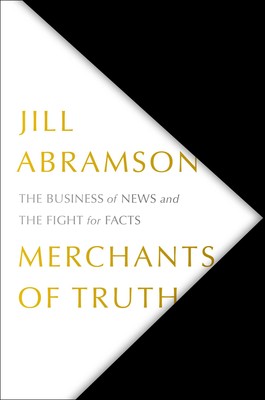
(Credit: Amazon)
Jill Abramson, the former New York Times executive editor, is standing by her book after allegations of plagiarism.
In a Feb. 7 statement posted on her Twitter account, Abramson argued, “The notes don’t match up with the right pages in a few cases and this was unintentional and will be promptly corrected. The language is too close in some cases and should have been cited as quotations in the text. This, too, will be fixed.”
Abramson defended her book, writing “all of the ideas in the book are original, all the opinions are mine.”
Abramson also gave an interview to NPR in which she maintained she “fell short” in citations. “In the cases that Michael Moynihan cited, there isn’t the correct page number for the credited citation. I’m going to fix those pronto and am determined to make my book flawless and will fix these things as absolutely soon as I can,” she told NPR.
On Twitter, Moynihan wrote that Abramson’s claim that sources were cited incorrectly was “unbelievable” and “a flat-out lie.” iMediaEthics has tweeted Moynihan to ask if he has found any other examples or problems in Abramson’s book.
Update: 2/12/2019 1:17 PM EST:
Simon & Schuster responded to iMediaEthics’ inquiry with this statement and a copy of Abramson’s above statement:
Jill Abramson’s MERCHANTS OF TRUTH is an important, exhaustively researched and meticulously sourced book about the media business in a critical moment of transition. It has been published with an extraordinary degree of transparency toward its subjects; each of the four new organizations covered in the book was given ample time and opportunity to comment on the content, and where appropriate the author made changes and corrections. If upon further examination changes or attributions are deemed necessary we stand ready to work with the author in making those revisions.






